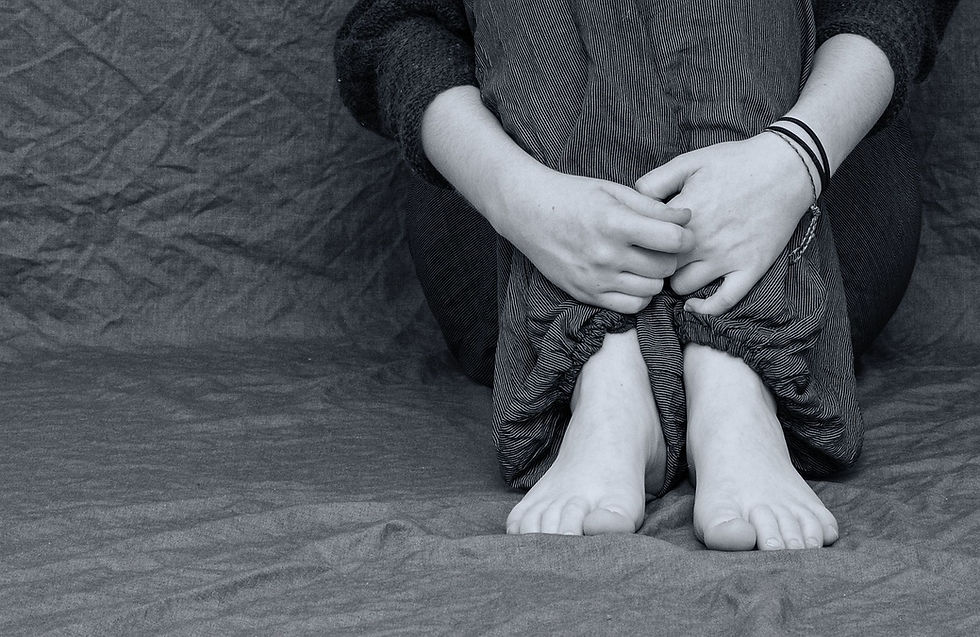Early Steps to Take After Experiencing Loss
- Dr Titilayo Akinsola

- Aug 22, 2025
- 3 min read
Introduction
Understanding the Shock of Loss
The moment loss strikes, reality fractures. The world continues to turn, indifferent to the shattering of your inner landscape. Shock is a natural response—an anesthetic gifted by the brain to cushion the blow. This initial numbness is not weakness; it is a protective pause before grief unspools.

The Unseen Terrain of Grief
Grief is not linear. It is not tidy. It does not conform to stages, despite well-meaning models. Grief is wild terrain—twisting, regressive, unpredictable. Navigating it begins not with control, but with surrender.
Allow Yourself to Feel
Validating the Spectrum of Emotions
Sadness may arrive first, but it rarely travels alone. Anger, guilt, confusion, and even fleeting moments of relief or laughter may follow. These are not betrayals of love or loyalty; they are the kaleidoscope of authentic human emotion. Let them be.
Avoiding Emotional Suppression
Suppressing grief is akin to sealing a volcano. The pressure mounts. Eventually, it erupts in destructive form—through anxiety, illness, or emotional detachment. Give grief a voice. Even if it trembles, let it speak.
Create a Safe Emotional Space
Identifying Trusted Individuals
Not all company is comforting. Identify those who offer presence without platitudes. Friends who can sit in silence, family members who listen more than they speak—these are the anchors in the storm.
Establishing Boundaries in Early Grieving
Well-meaning intrusions can wound. It is acceptable—even necessary—to say no. To opt out of gatherings. To ignore calls. Your grief is not a public performance.
Attend to Immediate Practicalities
Managing Legal and Logistical Matters
Loss often brings paperwork—death certificates, estate documents, funeral planning. Tend to them with support. Delegate when possible. Bureaucracy should not overshadow bereavement.
Asking for Help Without Shame
Grief drains the body and mind. If cooking a meal or walking the dog feels insurmountable, ask for assistance. Let others carry some of the weight. That is not weakness; it is wisdom.
Take Care of Your Physical Health
The Somatic Impact of Grief
Grief does not reside only in the psyche—it permeates the body. Chest tightness, fatigue, digestive disruption, and headaches are common. Your body mourns, too.
Sleep, Nutrition, and Movement
Prioritize sleep, even if it is fragmented. Eat nourishing food, even in small portions. Move your body, even if only to stretch. These acts are not indulgent—they are foundational to healing.
Avoid Major Life Decisions
Why Delay Matters
In the wake of loss, judgment is clouded. Emotions amplify or obscure priorities. Major decisions—relocations, job changes, financial commitments—require clarity. Time restores perspective.
The Risk of Impulsive Change
Beware the urge to flee, to renovate your life as a distraction from pain. Radical shifts made in the grip of grief often compound instability rather than resolve it.
Engage with Support Systems
The Role of Community
Grief is isolating, but community can act as a balm. Religious congregations, grief groups, close-knit circles—they remind you that sorrow shared is sorrow softened.
When to Seek Professional Grief Counseling
Not all wounds heal on their own. When despair lingers, or functioning diminishes, professional help is warranted. Therapists trained in bereavement can provide tools for processing and reorientation.
Begin Rituals of Remembrance
The Psychological Importance of Tribute
Rituals transform grief into reverence. Lighting a candle, planting a tree, creating a memory box—these acts help integrate loss into life’s narrative.
Personalized Acts of Memorial
There is no right way to honor the departed. A poem, a playlist, a private hike to a shared place—all are valid. Let remembrance be as unique as the love you held.
Journal and Reflect
Externalizing Inner Turmoil
Writing provides sanctuary for unspoken thoughts. It allows you to witness your own unraveling—and your gradual reweaving. Journaling is not performance; it is process.
Documenting the Evolution of Grief
Grief morphs. What devastates today may simply ache tomorrow. Journaling helps track this metamorphosis. It shows that, even amidst sorrow, there is motion.
Accept the Nonlinear Path
Grief as a Cyclical Experience
Expect relapses. A scent, a song, an anniversary can reignite rawness. This does not mean you’ve regressed. It means you are human. Healing spirals, it does not march.
Making Space for Hope and Continuance
Grief and joy are not adversaries. In time, moments of levity and connection return. They are not betrayals of memory, but affirmations of life. Allow them in.




Comments